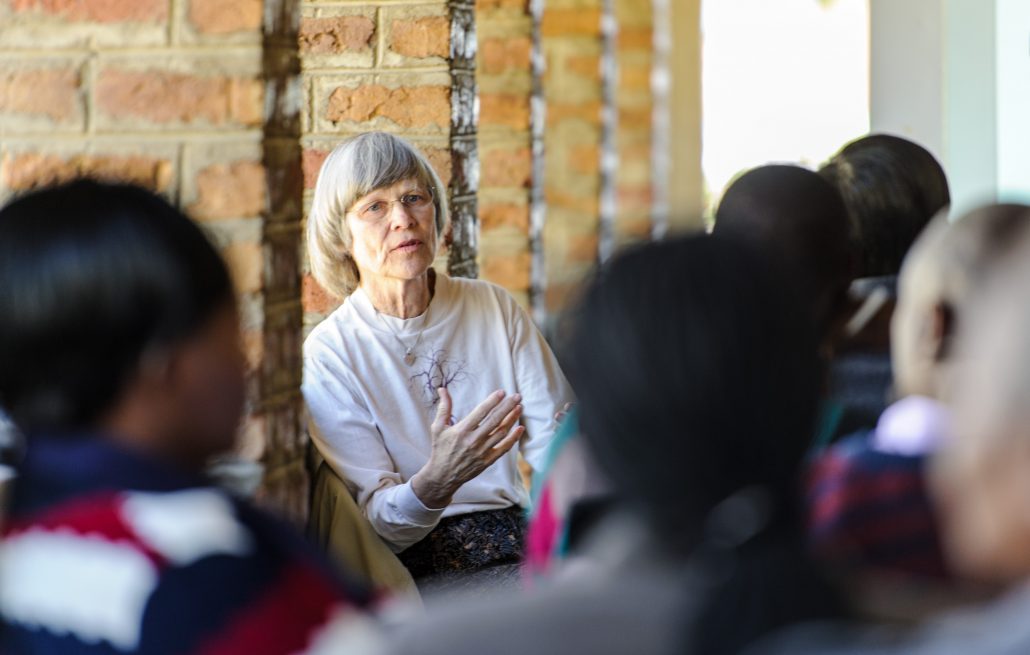
The Anita Zucker Center for Excellence in Early Childhood Studies is changing lives abroad through a cross-cultural parenting skills initiative. The program addresses the need for specialized care for children with learning disabilities by providing parents and caregivers with the skills to support learning and healthy families; strengthening a community through education.
After three days of learning in the Zambian town of Kalomo, a group of health and education professionals, parents, caregivers and village representatives were eager to give special care to local children with developmental delays or disabilities.
In June, the Anita Zucker Center for Excellence in Early Childhood Studies sent Brian Reichow, associate professor of special education and early childhood studies, and pediatrician Marylou Behnke, professor emerita of medicine, to finalize cultural adaptations for a parenting skills training program in Kalomo and the surrounding villages, an area that lacks access to specialists.
“We needed to work with our key stakeholders in Zambia to ensure the training was culturally relevant and met the needs of the families locally,” said Reichow. “After the workshops, we feel more confident the program will be sensitive to the Zambian context and culture.”

The trainings were adopted from the World Health Organization’s Parent Skills Training Programme for Caregivers of Children with Developmental Disorders, an ongoing initiative that Reichow has been working on since its inception in 2013. The program consists of nine group sessions and three home visits for the families. Content is delivered through modeling and guided practice during the group sessions, as well as targeted coaching of parent-child interactions during home visits.
The project is an interdisciplinary collaboration between Reichow, Behnke and Patricia Snyder, director of the Anita Zucker Center and the David Lawrence Jr., Endowed Chair in Early Childhood Studies. The project team enlisted the assistance of a project manager in Zambia and a core local adaptation team that includes a physiotherapist, clinic administrator, medical advocate, retired nurse, and a representative from the district medical office.
The next step for Reichow, Behnke, and Snyder is to begin to work on the implementation phase of the project, when six to eight Kalomo caregivers are trained by local facilitators from the adaptation team.
“Our goal is to create a sustainable program in areas that don’t have access to specialist trainers,” said Reichow. “This work is at the core of the Anita Zucker Center’s mission: to help young children and their families, especially those with vulnerabilities — no matter where they live.”
 Early Learning
Early Learning
